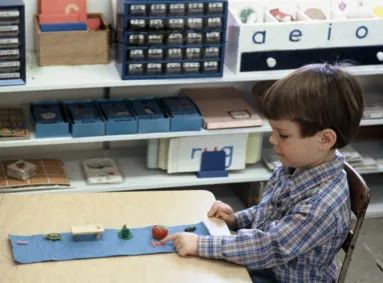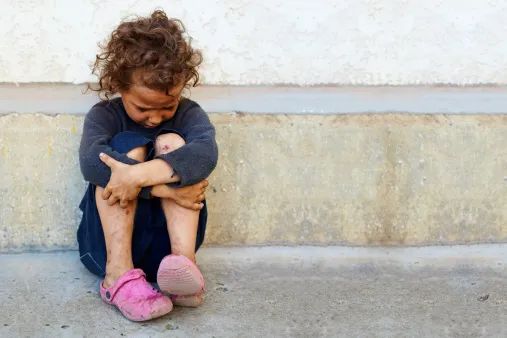Classroom Competitions: Are They Worth It?
We’ve all heard it—bribes do not work, incentive programs do not work, punishment does not work, and labels hurt everyone. This is usually spoken of in the context of raising or educating children, and is often considered to be true. So let’s think about it. Are competitions, incentive programs or punishments ever effective? When you were young, did you see these things as positive motivators, or did you dismiss them as trivial or even harmful to your development?
As Montessorians we understand that in a well-run Montessori classroom, children don’t need incentives to be motivated. They are already motivated in the prepared environment of the classroom. Each child is allowed to find his or her perfect work, since work is really like play to the child. The lessons and materials are designed to fulfill children at their particular stage of development or sensitive period, and seeing is believing. When you observe children in such a classroom, you discover this very process happening. It's really quite magical.

When I think about my own education I remember some experiences with classroom competitions and incentive programs. My first-, second- and fifth-grade teachers used “team” competitions to control behavior in the classroom. In middle school (fourth through sixth grades), an incentive program was instituted to excite the students about reading. I was a very rule-abiding child by nature, but these programs did nothing to change my behavior. For those students who were not natural rule-abiders, the programs were not only ineffective, but I think they actually damaged some of the children.
“Team” Competitions
In my elementary classes, teams were selected for competitions. Each team created a team name and selected a game symbol or color to represent them on the game board, which was posted for everyone to see. One class used magnetic horses moving through a steeple chase. Similar to a board game, the horses advanced by the number of points earned through good behavior. Good behavior included helping the teacher clean up after art projects and being the first table to quiet down after coming in from recess. Bad behavior such as talking too loud, running in the hall or being late to class caused your horse to be moved backwards.

As in all groups there was diversity. My class consisted of the two typical groups: the well-behaved children and the “trouble children.” When a group was selected to become a team that consisted of mostly “good” students, the team celebrated because they had a greater chance of winning. If the team consisted of mostly “bad” members, a good deal of pouting went on. Comments I can vividly remember are:
“Yes! We got Suzi ; we might actually win.”
“Ugh! Brian always loses points.”
“Kayla, can you at least try to help us win this time?”
We all assign labels in our head to the members of the groups we operate in, but these classroom “team” situations only exacerbated the labeling of students. Children not feeling welcome in the group resisted by acting out intentionally to lose points and often stated, “It’s a stupid game anyway!” As an adult, now I can see that they had lost hope. Beaten down by the labels they had picked up, often as early as Kindergarten, they lashed out to defend themselves against being hurt by the lack of faith their group had in them.
Accelerated Reading
In middle school I took part in a reading incentive program called Accelerated Reading. This (required) program assigned every book in the library a point value based on how long and difficult the book was. At the end of the year every student who had reached 100 points was rewarded with a special field trip; swimming, lunch and the mini-golf course, for instance. Those who did not make the required 100 points were left behind.

I have always been a strong reader, something I attribute to my father’s passion for reading and also to not having a TV in the home as a child. But some students struggled and fought for every point earned, really working hard for that end-of-the-year field trip. I ended each year with over 500 points simply because I loved to read. The resulting comments were predictable:
“I go to mini-golf every weekend with my cousin. Why would I want to go with my teacher?”
“Just because you have a ton of AR points doesn’t make you smarter than me.”
“AR is for nerds.”
The students who said things like this often sat in the library and refused to even select a book. Or they tried valiantly for about a month, got frustrated with their slow progress and, seeing that they were being left behind by their classmates, just gave up.
A Look Back
Reflecting back on these experiences, I now see that this competition must have been completely daunting and humiliating for those sixth-graders who had never grasped reading for one reason or another. Reading did not bring to them the thrill of an imagined world or the experience of a step back in time like it did for me. It was a chore, and a tough chore at that.
Positive Labels Are Harmful, Too
We often look at these programs as only harmful to those who did not achieve, but I think it harms the achievers as well. Looking back, I wish the teachers had realized that reading was something I had mastered and then had switched my focus to math, which to this day I struggle with. I wish that, as an eleven-year-old, I had had the compassion to reach out to a struggling student and focus on reading with him to help him make the trip, too. In a Montessori classroom you will see older children helping younger children when they struggle. They are able to create a learning community culture that helps and doesn’t compete against each other.

You Cannot Put Accelerated Reading on Your Resume
I basked in being the “best reader” in the school. I liked the label of “smart kid”; it gave me something to identify myself with. However, that identity doesn’t take a person very far in life. No one is impressed when you tell him that in middle school you earned over 600 AR points in one year. However everyone enjoys a light-hearted competition. Let’s instead play checkers, jump rope or enjoy a solo sport like skiing with our friends. Even better, let’s care for the community by walking dogs at the humane society, picking up playground trash, or visiting the local food bank. Working together for a greater purpose is much better than competing with your fellow classmates, in my opinion. Life is not a race and at the end there are definitely no field trip rewards.
I would like to know from our community, what methods do you use in the class to teach community responsibility and good behavior?




















